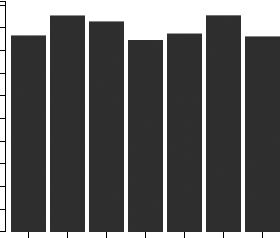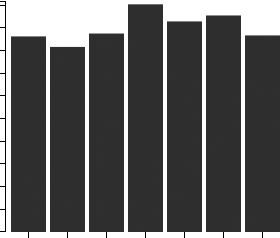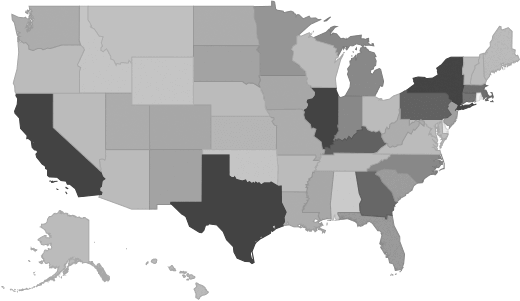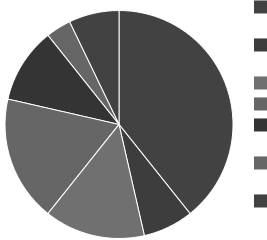Hazardous Waste Collection Industry - Market Research Report
Industry Overview
This U.S. industry comprises establishments primarily engaged in collecting and/or hauling hazardous waste within a local area and/or operating hazardous waste transfer stations. Hazardous waste collection establishments may be responsible for the identification, treatment, packaging, and labeling of waste for the purposes of transport.
Source: U.S. Census BureauMarket Size and Industry Forecast
This research report analyzes the market size and trends in the Hazardous Waste Collection industry. It shows overall market size from 2020 to the present, and predicts industry growth through 2030. Revenues data include both public and private companies.
| Historical | Forecasted |
|---|
| 2020 | 2021 | 2022 | 2023 | 2024 | 2025 | 2026 | 2027 | 2028 | 2029 | 2030 |
|---|
| Market Size (Total Revenue) | Included in Report |
| % Growth Rate |
| Number of Companies |
| Total Employees |
| Average Revenue per Company |
| Average Employees per Company |
Source: U.S. government financial dataIndustry Revenue ($ Billions)

Industry Forecast ($ Billions)

Advanced econometric models forecast five years of industry growth based on short- and long-term trend analysis. Market size includes revenue generated from all products and services sold within the industry.
Geographic Breakdown by U.S. State
Market size by state reveals local opportunity through the number of companies located in the region. Each state's growth rate is affected by regional economic conditions. Data by state can be used to pinpoint profitable and nonprofitable locations for Hazardous Waste Collection companies in the United States.
Hazardous Waste Collection Revenue by State

Distribution by Company Size
| Company Size | All Industries | Hazardous Waste Collection |
|---|
| Small Business (< 5 Employees) | Included |
| Small Business (5 - 20) |
| Midsized Business (20 - 100) |
| Large Business (100 - 500) |
| Enterprise (> 500) |
Hazardous Waste Collection Industry Income Statement (Average Financial Metrics)
Financial statement analysis determines averages for the following industry forces:
- Cost of goods sold
- Compensation of officers
- Salaries and wages
- Employee benefit programs
- Rent paid
- Advertising and marketing budgets
The report includes a traditional income statement from an "average" company (both public and private companies are included).
| Industry Average | Percent of Sales |
|---|
| Total Revenue | Included |
| Operating Revenue |
| Cost of Goods Sold (COGS) |
| Gross Profit |
| Operating Expenses |
| Operating Income |
| Non-Operating Income |
| Earnings Before Interest and Taxes (EBIT) |
| Interest Expense |
| Earnings Before Taxes |
| Income Tax |
| Net Profit |
Average Income Statement

Cost of Goods Sold
Salaries, Wages, and Benefits
Rent
Advertising
Depreciation and Amortization
Officer Compensation
Net Income
Financial Ratio Analysis
Financial ratios allow a company's performance to be compared against that of its peers.
| Financial Ratio | Industry Average |
|---|
| Profitability Ratios | Included |
| Profit Margin |
| ROE |
| ROA |
| Liquidity Ratios |
| Current Ratio |
| Quick Ratio |
| Activity Ratios |
| Average Collection Period |
| Asset Turnover Ratio |
| Receivables Turnover Ratio |
| Inventory Conversion Ratio |
Products and Services Mix
Product lines and services in the Hazardous Waste Collection industry accounting for the largest revenue sources.
| Product Description | Description | Revenue
($ Millions) |
|---|
| Industry total | Included |
| Hazardous waste collection services |
| Hazardous waste collection - waste collection, non-residential |
| Hazardous waste transportation services |
| Non-haz waste/recyclable mat collection services, non-residential |
| Non-hazardous - waste collection services, non-residential |
| Hazardous waste collection - waste collection, residential |
| Hazardous waste & recyclable mat consolidation, storage, & prep |
| Hazardous waste disposal services |
| Hazardous waste disposal services by other methods |
Salary information for employees working in the Hazardous Waste Collection industry.
| Title | Percent of Workforce | Bottom Quartile | Average (Median) Salary | Upper Quartile |
|---|
| Management Occupations | 4% | Included |
| Chief Executives | 0% |
| General and Operations Managers | 2% |
| Office and Administrative Support Occupations | 12% |
| Installation, Maintenance, and Repair Occupations | 6% |
| Transportation and Material Moving Occupations | 70% |
| Motor Vehicle Operators | 25% |
| Driver/Sales Workers and Truck Drivers | 25% |
| Heavy and Tractor-Trailer Truck Drivers | 24% |
| Material Moving Workers | 42% |
| Laborers and Material Movers, Hand | 8% |
| Laborers and Freight, Stock, and Material Movers, Hand | 8% |
| Refuse and Recyclable Material Collectors | 31% |
| Refuse and Recyclable Material Collectors | 31% |
Government Contracts
The federal government spent an annual total of
$38,836,287 on the hazardous waste collection industry. It has awarded 1,350 contracts to 196 companies, with an average value of $198,144 per company.
Top Companies in Hazardous Waste Collection and Adjacent Industries
| Company | Address | Revenue
($ Millions) |
|---|
Included |



